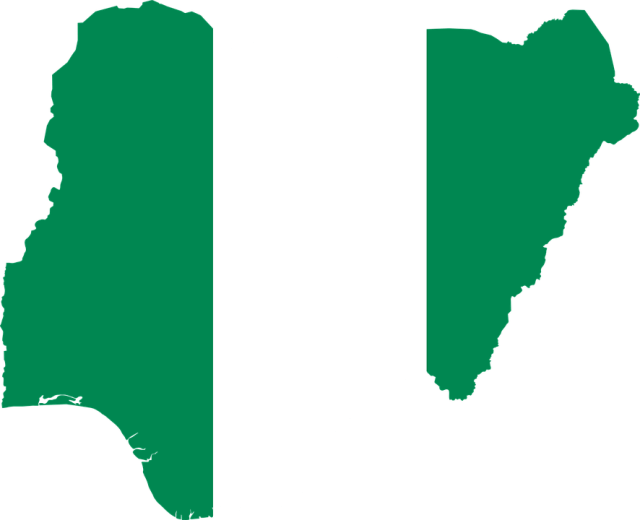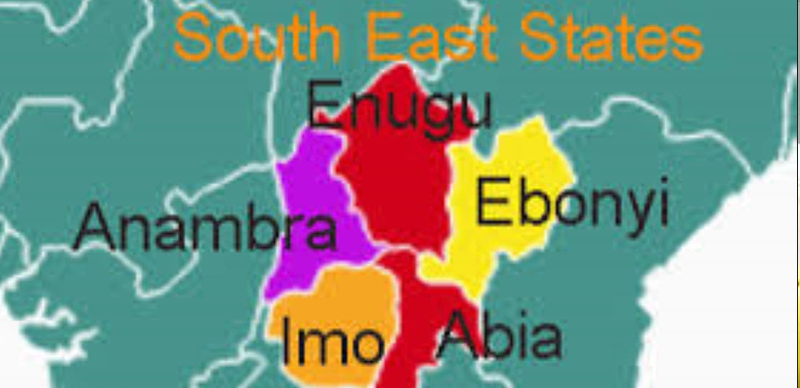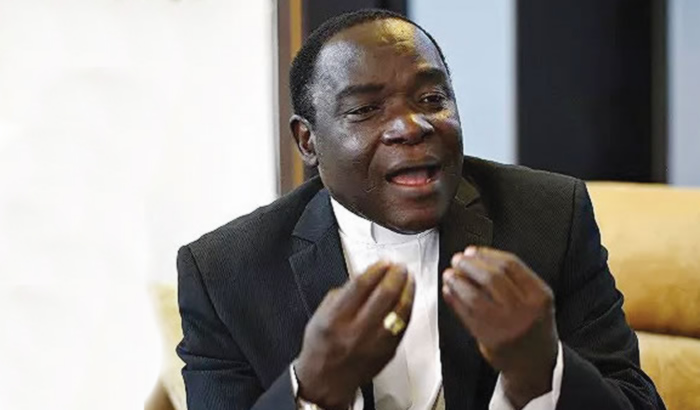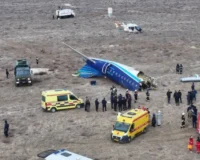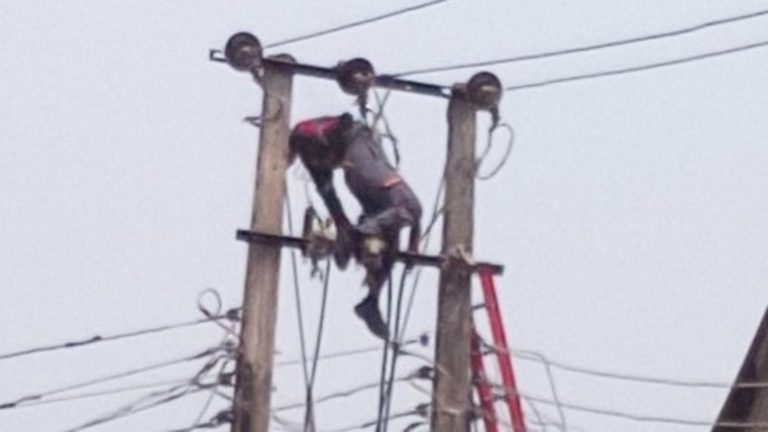Buhari has to convince Christians there’s no islamisation agenda
A RENOWNED Global Mission Leader, President and CEO of The Para-Mallam Peace Foundation, public peace advocate for the release of Dapchi school girl, Leah
Sharibu, remaining Chibok girls and several other Christian faithful including aid workers, Reverend Gideon Para-
Mallam took time off his busy schedule to field questions on the state of the nation at 60. Excerpts.
What has been Nigeria’s success story 60 years after independence?
Nigeria really has nothing to celebrate at 60 for many obvious reasons. Any honest and objective assessment of Nigeria will come to this undeniable conclusion. A plethora of post-independence events – the struggle to hold legitimate elections in the Western region, the first military coup and counter-coup of 1966, the pogroms leading to the 30-month brutal civil war, subsequent coups upon coups, electoral fraud of the highest order by the State itself which led to the cancelled June 12,
1993 election adjudged to be the freest and fairest in Nigeria to date, the struggle to actualize this mandate won by the late business mogul, Bashorun MKO Abiola, which was ruthlessly suppressed by the military and many fault lines in nation building could all have led to the dismemberment of the Nigerian State. However, concerted efforts by successive Nigerian governments and other non-state actors have proved the need in keeping a united Nigeria.
The country’s preference for democracy in the late 1990s to some extent has yielded some positive result. The country since 1999 has experienced uninterrupted liberal democratic rule which give room to overflowing emergence of media houses, civil organizations that enable the common man to question the elite despite extant oppression. Thus, in a fundamental sense, Nigeria’s success story is limited to its existence as a nation, uninterrupted democracy, and relative media liberty.
There is no doubt that years of failed leadership and misrule has robbed Nigeria of her greatness both politically and economically and even threatened the survival of this most populous black country in the world. Three decades of military rule which snowballed into the bitter experience of the 1967-1970 civil
war which was the climax of all the
challenges – today, the spectre of multif-aced civil wars on many fronts confront Nigeria: religious and ethnic dismemberment of the State remain a cause for real concern.
Celebrating Nigeria at 60 on a low-key basis seems to be the right thing to do. Nigeria right now is a dysfunctional and fragmented country with no unity of purpose.
There are different elements at war: tribalism, nepotism, corruption, poverty, injustice, godfatherism,
unemployment, bad leadership makes a strong case for none celebration.
With Nigeria topping the world’s poverty chart, I fear the country is heading towards total failure. What we need is a clinical political operation. The past
efforts in patching things to give the world a semblance of sanity when the nation is insane must Stop! Gone are the days when this potentially great country of diverse culture and religious dynamism beats the drum of “Unity in Diversity.” Sadly, now, we sing more of our “division.” Our leaders have misplaced priorities with the soul aim of satisfying their selfish interest from the so-called National cake.
Last Monday was International Day of Peace with a theme: “Shaping Peace Together”. Some eminent Nigerian statesmen like former President Olusegun
Obasanjo and Prof. WoleSoyinka recently claimed that the nation is more divided in the last five years. Have we done enough to achieve national peace?
The ethno-religious manifestation of our challenges of peace and security also suggest some level of disunity.
The common saying which celebrates unity in diversity appears a mirage in Nigeria. Rather our diversity which ought to be a source of strength has instead become a weakness in view of the growing mutual distrust, suspicion and resentment along ethnic and religious fault lines.
Without iota of doubt, the euphoria that trailed the declaration of our independence from Britain on October 1, 1960, has now withered down by scores of events that characterize today’s Nigerian state. Nigeria is plagued with a plethora of challenges which range from insecurity, poverty, toxic ethno-religious framing conflicts, a neo-religious imperialism which are all fuelled by the absence of good governance. Therefore, there is no incentive for Nigerians to celebrate this milestone, as many even perceive the national holiday as a threat to their businesses when the economy would be shut to mark the day.
The country’s preference for democracy was premised on the hope that it would unite the heterogeneous Nigerian state and its institutional capacity to distribute social and economic justice, and welfare for all without discrimination, which is
necessary for the achievement of national cohesion. The government has not done enough to promote national and social cohesion.
The politics of domination, religion, and marginalization have worsened in the last five years during the Buhari Presidency than at any other time in our history. This has provided fertile grounds for the emergence of ethno-nationalistic movements across the six geopolitical zones calling for the dismemberment of Nigeria.
The rebirth of ethnic and religious consciousness more than ever before would jeopardize the existence of Nigeria as a nation if things continued this way. When the plural nature of Nigerian state is not factored in the way the state is governed, the way appointments are made into key strategic positions, there cannot be peace.
The federal character commission has underperformed in ensuring fair distribution of opportunities along ethnic lines. There are sharp horizontal inequality in Nigeria now which has created a deep sense of exclusion and marginalization; which has now sown seeds of discord that threaten national peace and security in the country.
The present reality has attracted condemnation of this administration
misgovernance by prominent Nigerians and statesmen, notably by the former President Olusegun Obasanjo and Prof.
Wole Soyinka. Soyinka was reported to have said: “. . . We are close to extinction as a viable comity of peoples, supposedly bound together under an equitable set of protocols of co-habitation, capable of producing its own means of existence, and devoid of a culture of sectarian privilege and will to dominate.”
He stressed the need for us all to avoid collective suicide. Our democracy is in crisis. The Nigerian government over time has monopolized democratic powers within her jurisdiction by creating an ineffective security system which is only strong in attacking her citizens but weak in fighting crimes and insecurity. Unemployment has directly and indirectly increased crime and suicide rate. Terrorism and kidnapping have become the order of the day. Hopes were high when the current APC government took over power in 2015. Yet this is where we are.
Sadly, the nationalistic spirit of Nigerians has vanished, and sectional agendas have been rekindled.
The government must ask why and not only blame the populace.
International Day of Peace – Political, racial, tribalistic and religious divide has robbed our country of peace. Even though the day was devoted to strengthening the ideals of Peace through observing 24 hours of non-violence and cease fire, what then happens after 24 hours? The continuous killings, kidnappings and destruction of properties by Fulani herdsmen and Boko Haram attacks
mocks the International Day of Peace in Nigeria. Clearly, President Buhari and the rest of us haven’t done a lot to achieve national peace and this is evident by the recurrent outbreak of violent conflicts across the country.
Let me quickly add that this year’s celebration was witnessed in the context of the world confronting a common enemy in COVID-19 which threatens World Peace. However, I have always maintained that the efforts of the Federal and State governments along with several
well meaning Nigerians in fighting the COVID-19 pandemic deserves real commendation. I wish they had confronted the insecurity challenge with a similar resolve.
The world is expecting President Buharito make a definitive pronouncement on the safety of Leah Sharibu and all other Christians taken into illegal captivity by
Boko Haram . . . NCEF and a couple of other Nigerians like your Peace Foundation, have cried themselves hoax over their release. Are these groups justified that there is a plot to Islamize Nigeria, especially with the NASS’ passivity on key national issues?
The case of Leah Sharibu and all other
Christians in Boko Haram’s captivity is really a sad one. It provokes one to question the understanding of the conventional notion of internal sovereignty. There are reports of negotiations between the government and the terrorists but to our dismay, the government has gone silent on the safety and release of Leah Sharibu, and others. What’s going on? We know not. The recent economic incentives provided by the Nigerian government to the “repentant” Boko Haram members isreally disturbing. What has this government done to the victims in comparison to their largesse to the perpetuators of such evil and violence?
The President has virtually ignored the
plight of the victims and their relations. The military approach in prosecuting the war against the insurgents hasn’t been productive. While over 35,000 military and police personnel were deployed for the just concluded Edo State gubernatorial elections, the killings in Southern Kaduna attracted much smaller number as response from the federal government gives credence to claims from some quarters that Islamizationagenda is underway under this dispensation.
The silence of the president over the safety of those in Boko Haram captivity, and the body language of the government to the Fulani herdsmen rampage, pillaging, killings, and sacking of host communities, and the attempt by the government to find a safe haven for herdsmen pastoral adventurist through the suspended RUGA, and now the recent controversial draconian Water Resource Bill are factors shaping the thoughts of concerned Nigerians about an
Islamization agenda.
The dominance of Muslim appointees in several government parastatals shows the President Buhari is not for everyone when he said “I am for everybody and I am for nobody.”
Take for instance the appointment of the, Chairman of the National Population Commission, some of us learnt a Christian from Nasarawa State, in fact a former Deputy Governor was
pencilleddown for that appointment but later his name was replaced by a Muslim from the same state. You tell me there is no Islamic agenda?
Why should Leah
Sharibu, Alice Ngaddah, Grace Tuka, Lillian Daniel Gyang remain in
BokoHaram’s captivity this long? I hear others say they are not the only ones that there are many Muslims too and I ask does that then justify their being kept in captivity because of their faith?
What will a definite pronouncement by President Mohammadu Buhari on the safety of Leah Sharibu and others achieve if he cannot free them? Ensuring their safe release is what Buhari needs to do
honourably.
Otherwise all his criticisms of former President GoodluckJonathan’s failure in addressing our security concerns will come back to haunt him, his Presidency and his legacy.
What future is there for Nigeria today?
Again, I will say Nigeria is at a crossroads, in fact hanging right now on a cliff. Our togetherness is being put to test as events in the last few years suggest. Nigeria’s attempt to ensure fairness has been in its adoption of federalism, with the hope that it would allow each state of the Federation to develop independently of one another and would abolish ethnicity and ethno-religious conflicts. Yet, the country continues to be driven by tides of ethnic hostilities with devastating consequences.
The continuous conflicts in Nigeria are political in nature with the fact that the specific structure of the Nigerian federal system has unfortunately been manipulated to encourage local and ethnic loyalties and therefore the leadership has failed to develop a national consciousness/unity through its policies. If the pluralistic nature of a country is not taken on board in the way the State is governed, it will be difficult for such a State to achieve progress.
Now, although our current state may not be desirable – however, all hope is not lost. I believe Nigeria can and shall rise again but that will not happen just because we wish it. This calls us all to rise and fulfil our individual
responsibilities as citizens of this great nation.
Those in government should work for the common good of all.
Our leaders must be the change they preach in action and not only in words. Leadership is everything in a nation. If a nation rises, it is because of good leadership and if it fails it is because of bad leadership.
Vanguard

